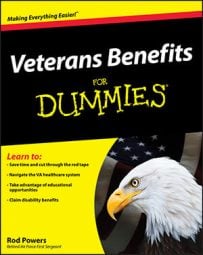The GI Bill helps veterans get the education needed to find civilian employment. Both the Post 9/11 GI Bill and the Montgomery GI Bill offer education benefits to veterans that can be used to pay for education programs that lead to an accredited college degree or an occupational objective.
Benefits under the new Post 9/11 GI Bill can only be used for programs offered by schools in the United States that are authorized to grant an associate’s degree or higher. That means, for example, you can’t use this program to pay for overseas college educations, nor for apprenticeship and on-the-job training programs, unless those programs are offered by a degree-granting institution in the United States.
The Active Duty Montgomery GI Bill (ADMGIB) and the Selected Reserve GI Bill (SRMGIB) can often be used for these purposes. This is another factor you should consider before deciding whether to convert to the Post 9/11 GI Bill.
The programs listed here are examples of the types of approved training programs for which GI Bill benefits are payable:
An undergraduate or graduate degree at a college or university, including
An accredited independent study program (which may be offered through distance education) leading to a standard college degree.
A cooperative (co-op) training program (a full-time program alternating school instruction and job training in a business or industrial establishment).
A certificate or diploma from a business, technical, or vocational school, including co-op programs.
An accredited independent study course leading to a certificate from a college, university, or other degree-granting educational institution.
An apprenticeship or on-the-job training (OJT) program offered by a company or union. Apprenticeships or OJT programs offer an alternative to college or vocational school for helping you gain experience in the field you choose.
A correspondence course.
Flight training.
You must have a private pilot certificate and meet the medical requirements for the desired certificate when you begin training.
Qualified programs overseas that lead to a college degree.
A state agency or the VA must approve each program offered by a school or company.
Although the GI Bills can be used to pay for a variety of education and training programs, there are certain restrictions on where or how the benefits can be used. You may not receive benefits for the following courses:
Bartending and personality development courses
Non-accredited independent study courses
Any course given by radio
Self-improvement courses such as reading, speaking, woodworking, basic seamanship, and English as a second language
Farm cooperative courses
Audited courses
Courses paid in whole or in part by the military tuition assistance or other armed forces program
Courses that are recreational in character
Courses that don’t lead to an educational, professional, or vocational objective
Courses you’ve taken before and successfully completed
Courses you take as a federal employee under the Government Employees’ Training Act
In addition to the course restrictions, you can’t use the ADMGIB or SRMGIB under the following circumstances:
Imprisonment: Individuals who are in a federal, state, or local prison after being convicted of a felony may receive only the cost of tuition, fees, necessary books, equipment, and supplies (up to your maximum monthly entitlement).
Denial of admission to degree program: If you seek a college degree, the school must admit you to a degree program by the start of your third term.
Position of influence at a proprietary school: You can’t use VA education benefits if you’re an owner or official of the school.
Fugitive felon status: The VA can’t pay education benefits for any period during which federal or state law enforcement identifies you as a fugitive felon. A person is considered a fugitive felon if he has an outstanding warrant for a felony.

